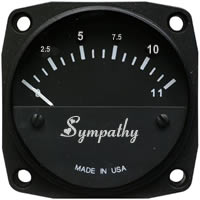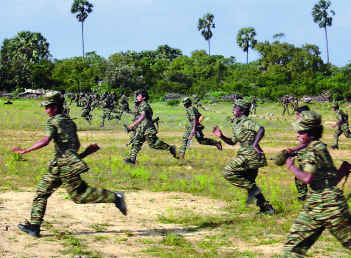 [Bangla Daily Star] Sri Lankan troops shot dead surrendering Tamil Tiger leaders on the orders of the defence secretary, the former army chief who is now running for president said yesterday.
[Bangla Daily Star] Sri Lankan troops shot dead surrendering Tamil Tiger leaders on the orders of the defence secretary, the former army chief who is now running for president said yesterday.General Sarath Fonseka said Gotabhaya Rajapakse -- the brother of the current president -- instructed field commanders not to take prisoners in the days before the Tamil Tiger separatists were defeated in May.
"Gotabhaya Rajapakse spoke directly with (commander) Shavendra Silva and told him not to accommodate any surrendering LTTE leaders and that they must all be killed," Fonseka told reporters at a meeting of opposition parties.
Fonseka said he was away in China and was unaware that Rajapakse was giving direct orders to officers in the field during the final stages of battle against the Tigers, officially known as the Liberation Tigers of Tamil Eelam.
He said he only learnt after the war that senior Tiger rebels had used foreign mediators to organise a plan in which they would carry white flags and give themselves up.
Fonseka led the army's successful offensive to finally crush the LTTE and end the island's decades-long ethnic conflict, but he later fell out with President Mahinda Rajapakse and the defence secretary.
He resigned last month, accusing the government of sidelining him, and is now attempting to unseat President Rajapakse in elections on January 26.
Sri Lankan authorities have resisted international calls for a war crimes investigation amid allegations by the United Nations that more than 7,000 civilians were killed during the first four months of this year alone.
Military spokesman Brigadier Udaya Nanayakkara declined to respond to Fonseka's remarks.
"This is a comment given by General Fonseka and he will come out with many more," Nanayakkara said. "We will not comment on what he says."
The government has previously denied ordering troops to kill Tamil Tiger political wing leader B. Nadesan, senior rebel S. Puleedevan and another Tiger official and their families.
The military claimed victory over the LTTE on May 18 after wiping out the leadership of the once-powerful movement, which began its armed struggle for an independent Tamil homeland in 1972.
Velupillai Prabhakaran, the group's founder, was killed in the fighting and his body shown on national television.
During the war's finale, the United States and other Western nations voiced alarm at Sri Lanka's treatment of non-combatants, along with its internment afterwards of up to 300,000 Tamil civilians.
Sri Lanka has said it is now allowing the civilians to leave state-run camps, although human rights groups say that many have nowhere to go with their villages destroyed in the fighting.
When launching his election campaign, Fonseka said he was moving into politics because corruption was preventing Sri Lankans from benefiting from the success that military forces had secured under his command.
He also surprised critics by agreeing to a possible war crimes investigation.

 Sri Lankan government troops have tightened their siege of the last strip of land on the island still controlled by Tamil Tiger rebels and are poised for a final assault, the military said on Friday.
Sri Lankan government troops have tightened their siege of the last strip of land on the island still controlled by Tamil Tiger rebels and are poised for a final assault, the military said on Friday. [Bangla Daily Star] Sri Lankan security forces resumed their offensive against Tamil Tiger rebels in the north of the island yesterday following a brief holiday ceasefire, the two sides said.
[Bangla Daily Star] Sri Lankan security forces resumed their offensive against Tamil Tiger rebels in the north of the island yesterday following a brief holiday ceasefire, the two sides said. [Bangla Daily Star] Sri Lankan troops captured a key village from the Tamil Tigers yesterday after heavy fighting that left at least 44 guerrillas dead while another 13 rebels were killed elsewhere, the military said.
[Bangla Daily Star] Sri Lankan troops captured a key village from the Tamil Tigers yesterday after heavy fighting that left at least 44 guerrillas dead while another 13 rebels were killed elsewhere, the military said. A suspected Tamil Tiger suicide bomber blew himself up several metres from the frontline on Monday, the military said. "A soldier on the frontline in Puthukudiyiruppu observed a military-uniformed man coming towards the [line] and when he moved ahead to search him, the terrorist exploded himself,"
A suspected Tamil Tiger suicide bomber blew himself up several metres from the frontline on Monday, the military said. "A soldier on the frontline in Puthukudiyiruppu observed a military-uniformed man coming towards the [line] and when he moved ahead to search him, the terrorist exploded himself,"